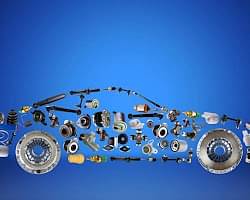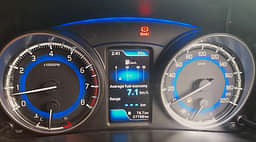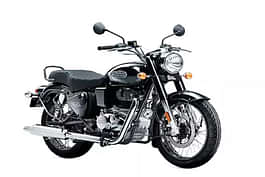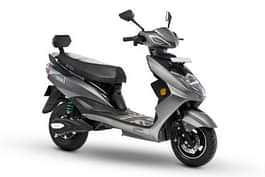
Key highlights
- Understanding what BHP stands for: Brake Horsepower.
- Understand that BHP is a measure of an engine's power without any power losses under ideal conditions.
- Explore the difference between BHP engine and HP Engine.
Have you ever wondered what BHP stands for? In this blog post, we will take a look at the full form of BHP, as well as what it means and how it is measured. We will also discuss the difference between BHP and HP.
What is BHP?

BHP stands for Brake Horsepower. It is a measure of an engine's power without any power losses under ideal conditions. BHP is measured at the flywheel, while Horsepower (HP) is measured at the wheels.
How is BHP measured Engine?
BHP is measured using a dynamometer. A dynamometer is a machine that measures the power output of an engine. To measure BHP, the engine is connected to the dynamometer and run at a constant speed. The dynamometer then measures the torque and rotational speed of the engine. The BHP is then calculated using the following formula:
BHP = (Torque * Rotational Speed) / 5252
Another convenient way to determine your brake horsepower (BHP) is by utilizing online BHP calculator tools. These efficient tools provide a simple and accessible method for measuring your BHP. With the help of these calculators, you can easily input the required parameters and obtain accurate results, allowing you to assess the power output of your vehicle or engine.
What is the difference between BHP and HP?
The difference between BHP and HP is that BHP is a more accurate measure of an engine's power. This is because BHP is measured without any power losses under ideal conditions. HP, on the other hand, is measured at the wheels, which means that it includes the power losses caused by the transmission, differential, and other auxiliary components.
Also Read : KTM 250 Adventure V Debuts With A Lower Seat Height!
How is BHP used?
BHP is used by car manufacturers to measure the power output of their engines. It is also used by car enthusiasts to compare the power output of different cars. BHP can also be used to calculate the acceleration of a car.
A car with a higher BHP will be able to accelerate faster and reach a higher top speed than a car with a lower BHP. However, it is important to note that BHP is not the only factor that affects a car's performance. Other factors, such as weight, aerodynamics, and gearing, also play a role.
In general, cars with a higher BHP are more expensive than cars with a lower BHP. This is because it takes more engineering and materials to produce an engine with a higher power output. However, for some drivers, the extra performance is worth the cost.
Here are some examples of how BHP is used in cars:
- Sports cars: Sports cars are designed for performance, and they typically have high BHP engines. This allows them to accelerate quickly and reach high speeds.
- Luxury cars: Some luxury cars are also equipped with high-performance engines. This gives them the power to tow heavy loads or handle difficult terrain.
- Trucks: Trucks often have powerful engines with high BHP and even much higher torque. This is necessary to tow heavy loads and haul large items
What are the factors that affect BHP Engine?
The factors that affect BHP include:
- Engine size: The larger the engine, the more cylinders it has, and the more power it can produce.
- Engine type: Different types of engines produce different amounts of power. For example, V8 engines typically produce more power than four-cylinder engines.
- Engine speed: The faster the engine spins, the more power it can produce.Air intake: The amount of air that the engine can intake affects how much fuel it can burn, which in turn affects the power output. Exhaust system: The exhaust system can affect the power output by reducing backpressure and allowing the engine to breathe more freely.
- Fuel quality: The quality of the fuel can affect the power output by affecting the combustion process.
- Engine maintenance: Regular engine maintenance can help to keep the engine running smoothly and efficiently, which can lead to increased power output.
What are the benefits of having a high BHP engine?
Having a high Brake Horsepower (BHP) engine can offer numerous benefits, providing drivers with enhanced performance and an exhilarating driving experience. A high BHP engine delivers impressive power and acceleration, allowing for quicker acceleration and higher top speeds. Here are some key advantages of having a high BHP engine:
- Faster acceleration. A high BHP engine can accelerate faster than a low BHP engine. This is because it can generate more power, which allows it to move the car's weight more quickly.
- Higher top speed. A high BHP engine can reach a higher top speed than a low BHP engine. This is because it can generate more power, which allows it to overcome air resistance and other forces that slow the car down.
- Better performance. A high BHP engine can perform better than a low BHP engine in a variety of situations, such as when towing or carrying heavy loads. This is because it can generate more power, which allows it to handle these tasks more easily.
- More fun to drive. A high BHP engine can be more fun to drive than a low BHP engine. This is because it can provide a more exhilarating driving experience, such as when accelerating quickly or taking corners at high speeds.
What are the drawbacks of having a high BHP engine?
While high Brake Horsepower (BHP) engines offer several benefits, they also come with certain drawbacks that need to be considered. Here are some potential drawbacks of having a high BHP engine:
- Higher fuel consumption. A high BHP engine typically consumes more fuel than a low BHP engine. This is because it requires more power to operate.
- Higher insurance premiums. The insurance premiums for a car with a high BHP engine are typically higher than the insurance premiums for a car with a low BHP engine. This is because high BHP engines are more likely to be involved in accidents. This is currently the norm internationally.
- More expensive to maintain. A high BHP engine is typically more expensive to maintain than a low BHP engine. This is because it requires more complex and expensive components.
- More difficult to drive. High BHP engines can be more difficult to drive than low BHP engines, especially in wet or icy conditions. This is because they require more skill and control to operate safely.
- More likely to damage the environment. High BHP engines produce more emissions than low BHP engines. This is because they require more fuel to operate, and this fuel is burned in the engine and released into the atmosphere as pollutants.
Conclusion
BHP is a measure of an engine's power without any power losses under ideal conditions. BHP is measured at the flywheel, while Horsepower (HP) is measured at the wheels. The difference between BHP and HP is that BHP is a more accurate measure of an engine's power. BHP is used by car manufacturers to measure the power output of their engines, and it is also used by car enthusiasts to compare the power output of different cars. BHP can also be used to calculate the acceleration of a car. The factors that affect BHP include engine displacement, engine RPM, engine efficiency, and engine tuning. The benefits of having a high BHP engine include increased acceleration, increased top speed, and increased towing capacity. The drawbacks of having a high BHP engine include increased fuel consumption, increased wear and tear, and increased insurance costs.



















































